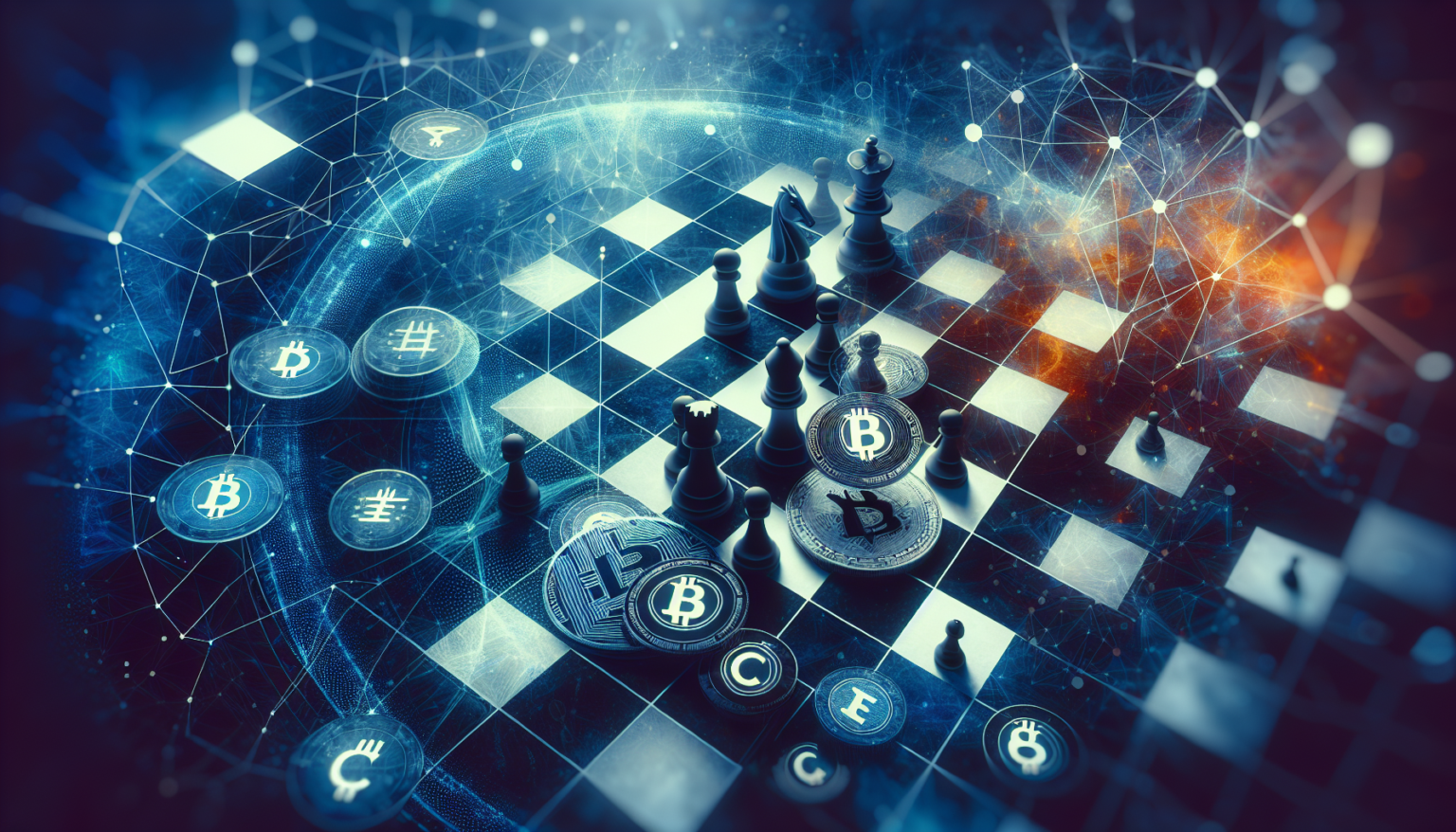Understanding Game Theory in Token Design
What is Game Theory?
Game theory is a mathematical framework for analyzing competitive and cooperative interactions between decision-makers, or agents. In essence, it helps predict the outcomes that might arise when multiple individuals or entities interact strategically. It’s commonly applied in economics, political science, and various fields, including technology and finance.
The Importance of Game Theory in Token Design
In decentralized finance (DeFi), successful token design is crucial for the sustainability of projects. Game theory provides insights into how token incentives can shape behaviors of users, developers, and investors. By understanding the underlying motivations and strategies of different participants, designers can create robust tokens that not only attract users but also sustain long-term growth.
Key Elements of Game Theory
To effectively integrate game theory into token design, it is essential to understand a few key elements:
Players
In the context of token design, the players can include developers, investors, liquidity providers, and end-users. Each group has its own motivations and desired outcomes, which designers must consider.
Strategies
Each player will have a set of strategies they can employ to maximize their outcomes. In token design, understanding these strategies helps in predicting how the token economy will behave under different scenarios.
Payoffs
Payoffs refer to the benefits or rewards that players receive based on their chosen strategies. Designing attractive payoffs is crucial for encouraging desired behavior in your token economics.
Strategic Token Design Approaches
Incentive Structures
Incentive structures are foundational to effective token design. By establishing compelling rewards for participation and specific behaviors, projects can guide user actions in desired directions.
Staking Rewards
Staking rewards engage users by allowing them to lock up their tokens in exchange for additional tokens or benefits. This incentivizes long-term holding and reduces market volatility.
Liquidity Mining
Liquidity mining encourages users to provide liquidity for projects by rewarding them with tokens. This is particularly valuable in DeFi, where liquidity is essential for a stable market.
Implementing Anti-Whale Mechanisms
Whales, or large token holders, can significantly impact market dynamics. Anticipating the actions of these players helps in designing mechanisms that reduce the risk of market manipulation.
Progressive Taxation on Transactions
Implementing a progressively increasing tax on transactions based on the size can deter disproportionate influence by whales. This allows for a more equitable distribution of power among participants.
Token Vesting
Using a vesting schedule for early backers and team members can ensure that large holders don’t dump their tokens en masse. This aligns incentives by encouraging holders to contribute positively to the network’s growth.
Creating Collaborative Environments
Fostering Community Participation
A thriving community is essential for any DeFi project, and game theory helps create an environment where collaboration is incentivized.
DAO Structures
Decentralized Autonomous Organizations (DAOs) create a structure where token holders can participate in governance. By allowing users to vote on proposals, you create a sense of ownership and encourage active participation.
Rewarding Contributions
Creating a system where users can earn tokens for contributions—whether it’s providing liquidity, developing new features, or marketing—helps broaden the ecosystem and ensures that a diverse range of voices is involved.
Designing Fair Markets
Fair market conditions are pivotal to a project’s long-term success. Game theory allows for the construction of economic models that both encourage participation and ensure fairness.
Fair Launches
Implementing a fair launch mechanism avoids scenarios where early investors have undue advantages. Concepts like the Dutch auction or liquidity bootstrapping pools can help level the playing field.
Implementing Fair Distribution Models
Distributing tokens based on user activity rather than a single allocation round can ensure a more balanced and active user base.
Real-World Applications of Game Theory in Token Design
Case Study: Uniswap and its Tokenomics
Uniswap has successfully integrated game theory into its token design with its liquidity provider model.
Liquidity Pools and Incentives
Initially, Uniswap attracted liquidity providers by offering them a share of the transaction fees proportional to their contribution. This structure creates an incentive for users to deposit funds into pools, thereby enhancing liquidity.
Community Governance
The introduction of governance tokens allowed Uniswap token holders to vote on key changes. This approach fosters a collaborative model that encourages users to contribute to the ecosystem’s development.
Case Study: Aave’s Lending Protocol
Aave is another exemplary project that leverages game theory principles effectively.
Flash Loans and Economic Incentives
The concept of flash loans allows users to borrow assets instantly without collateral. Aave incorporates fees for this service, aligning user interests with the overall health of the protocol.
Incentives for Liquidity Providers
Much like Uniswap, Aave incentivizes liquidity providers through token rewards, generating interest for both sides of trading.
Challenges and Considerations in Game Theory Application
Complexity in Tokenomics
While applying game theory can yield significant advantages, the complexity of creating a balanced token economy can pose challenges.
Predicting User Behavior
Understanding human behavior can be as complicated as it is crucial. What works in theory may not translate to real-world behavior, leading to unanticipated consequences.
Market Dynamics
DeFi environments are inherently volatile and can be influenced by external factors. Designers must consider how their token mechanics will hold up under sudden market shifts.
Ensuring Longevity
Sustainability is vital for any token economy, and continuous monitoring and iteration based on behavior are essential to adapt to changing conditions.
Feedback Loops
Creating feedback loops allows your token economics to evolve based on user interactions. This adaptability will help support the token’s long-term viability.
Balancing Rewards and Inflation
Constantly distributing new tokens can lead to inflationary pressures. Finding the right balance between rewarding users and maintaining token value is critical for sustainability.
Through engaging with game theory principles, token designers can construct mechanics that not only attract users but also foster a vibrant, engaged community for DeFi projects. Understanding the strategic actions of various actors aids in shaping tokens that contribute to success in a dynamic financial landscape. The blend of innovation, incentives, and community engagement proves essential for successful tokenomics in the exciting world of decentralized finance.








